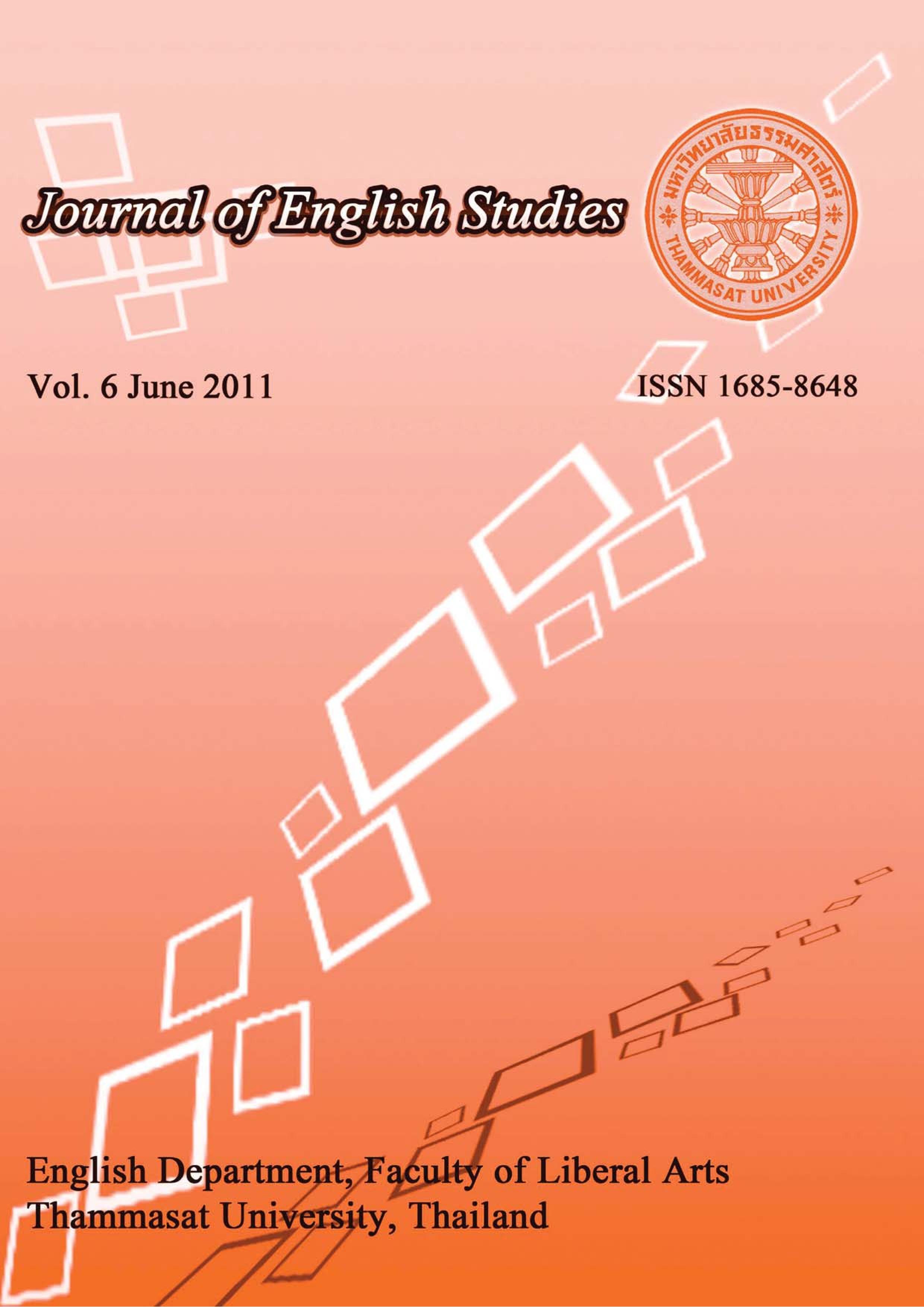Developing Engineering Students’ Critical Thinking Skills through Reading Short Stories
Main Article Content
Abstract
As stated in section 28 of the National Education Act of B.E. 2551 (2008), the
substance of the curricula, both academic and professional, places an emphasis on human development with critical thinking. Therefore, the purpose of this study was to investigate how critical thinking can be developed through close and analytical readings of short stories. A book club was established to facilitate the conduct of the research in which eleven participants comprising KMUTT students from different departments were assigned to read nine English short stories and discuss their opinion and understanding of each text in groups. Further data were collected through the participants’ personal written journals. They were used as evidence to demonstrate the subjects’ individual interaction with the texts which according to the ‘reception theory’ (Fish 1980; Holland 1975) have independent meanings and are open to interpretation. The implementation of the research was based on Bloom’s taxonomy (1956) which classifies cognitive behaviours into six categories, ranging from the fairly simple to more complex. The results reveal that some of the subjects were able to read and understand the texts in a more critical manner and their perceptiveness broadened. Also, it is hoped to shed light on the application of literature in developing critical thinking skills.
Key words: reading, short stories; Bloom’s taxonomy; critical thinking skills


